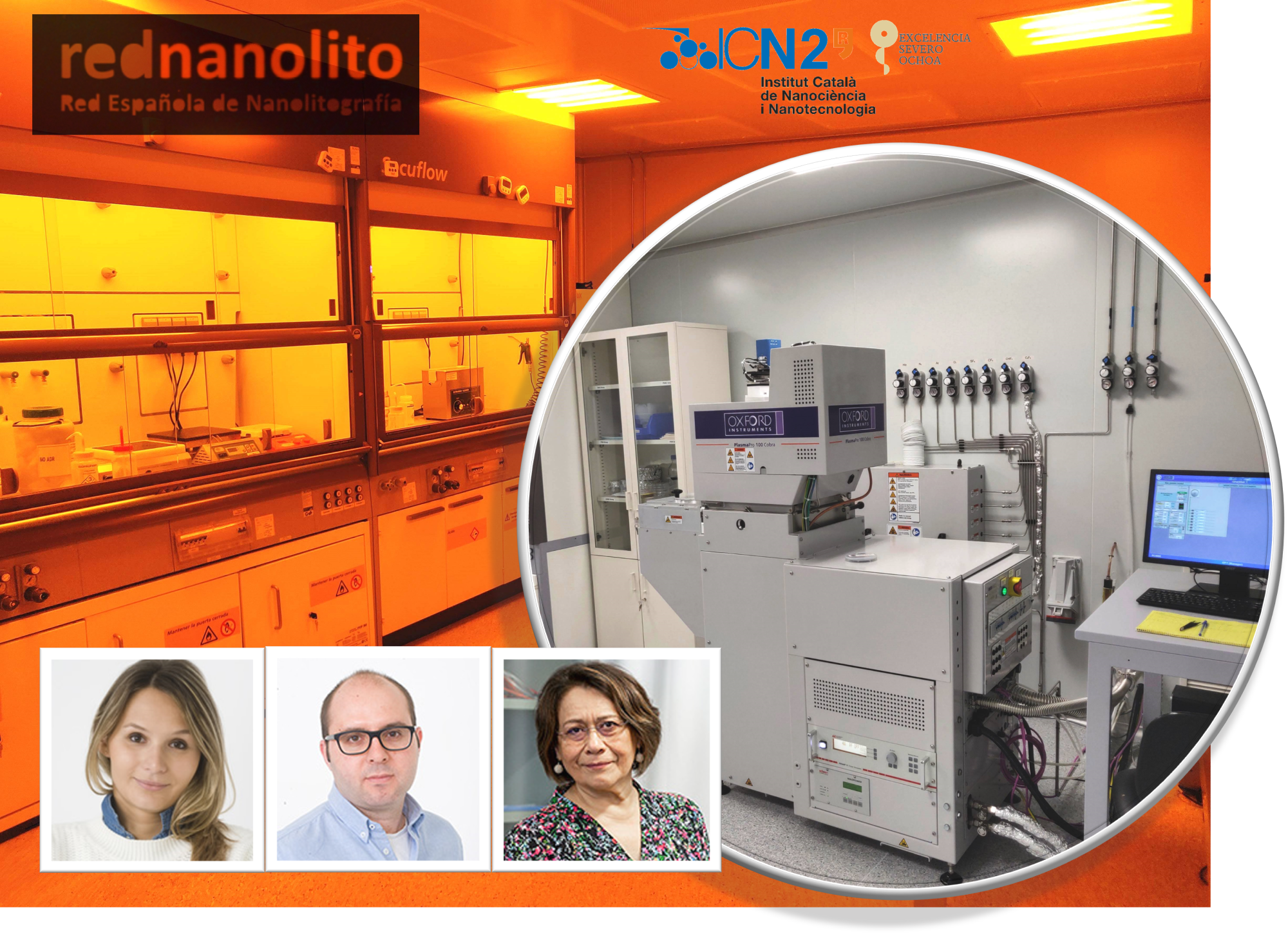The field of nanolithography in Spain receives a major impulse thanks to the renewed funding of the NANOLITO network, which includes many research groups working in this field. Among the institutes involved is the ICN2, with Dr Marianna Sledzinska as representative.

The NANOLITO network, which brings together several Spanish research groups working in the field of nanolithography, has been granted funding for the fourth time, for the next three years. The network was established 15 years ago and has been financially supported over the years by the Spanish Ministry of Science, through two Complementary Actions and two Networks of Excellence.
Nanolithography is an essential tool used in the manufacture of devices at the nanometric scale for both basic research and technological application purposes. It has a high strategic value in economic and technological development, as evidenced by the recent crisis in the manufacture of microchips, which has led to the European Chips Act at a European level and to the Strategic Project for Economic Recovery and Transformation (PERTE) in Semiconductors at a national level. These actions aim to accelerate the autonomy of Europe in chip manufacturing and, in the specific case of Spain, to strengthen the design and production capacities of the Spanish microelectronics and semiconductor industry.
The renewal of funding for NANOLITO is a significant boost to the field of nanolithography, which is of the highest relevance today, particularly in the fields of integrated electronic systems and quantum technologies. With the incorporation of two new groups that provide high-quality infrastructure in nanolithography and the reinforcement of some lines of research that are of special relevance, the network is poised to continue its contribution to the advancement of knowledge in the field.
The programme for the new financing period (2023-2025) foresees a series of actions –including meetings, summer schools, workshops, short stays for researchers, dissemination activities on the website and social networks, and an annual award for the best doctoral thesis in the field of nanolithography— designed to strengthen collaboration between different research groups, establish new synergies with other agents and networks, optimise resources, and achieve new knowledge.
The training of young researchers and the inclusion of a gender dimension are also important aspects of the future plan. The network is determined to boost the career of young researchers and produce an educational impact, as well as to promote the presence of women in the field of nanolithography, both in academia and in the industry. It is important to highlight that, in the current network, there is a strong participation of female researchers as representatives for almost half of the participating groups.
Coordinated by Prof. José Maria de Teresa Nogueras, from the University of Zaragoza (UNIZAR), currently the network includes research groups from the following institutions: the Catalan Institute of Nanoscience and Nanotechnology (ICN2) –with Dr Marianna Sledzinska from the Phononic and Photonic Nanostructures Group as representative—, the Institute of Photonic Sciences (ICFO, Barcelona), the University of Barcelona (UB), the ‘Complutense’ University of Madrid (UCM), the University of Salamanca (USAL), the ‘IMDEA Nanociencia’ Foundation, the Institute of Microelectronics of Barcelona (IMB-CNM-CSIC), the University of Alicante (UA), the Polytechnique University of Madrid (UPM), the Institute of Materials Science of Barcelona (ICMAB-CSIC), the Institute of Micro and Nanotechnology of Madrid (INM-CSIC), the Basque Cooperative Research Centre for Nanoscience (CIC-NANOGUNE), the University of Oviedo (UNIOVI), and the University of Valencia (UV).
Other members of the Phononic and Photonic Nanostructures Group are involved in the project, in particular group leader Prof. Dr Clivia Sotomayor-Torres, as well as Dr Raúl Pérez Rodriguez, senior laboratory officer at the ICN2 Nanofabrication Facility. Both represented the ICN2 in the NANOLITO network in previous financing periods. Researchers and PhD students from ICN2 also took part as speakers or attendees in several workshops and schools organised in the past.

